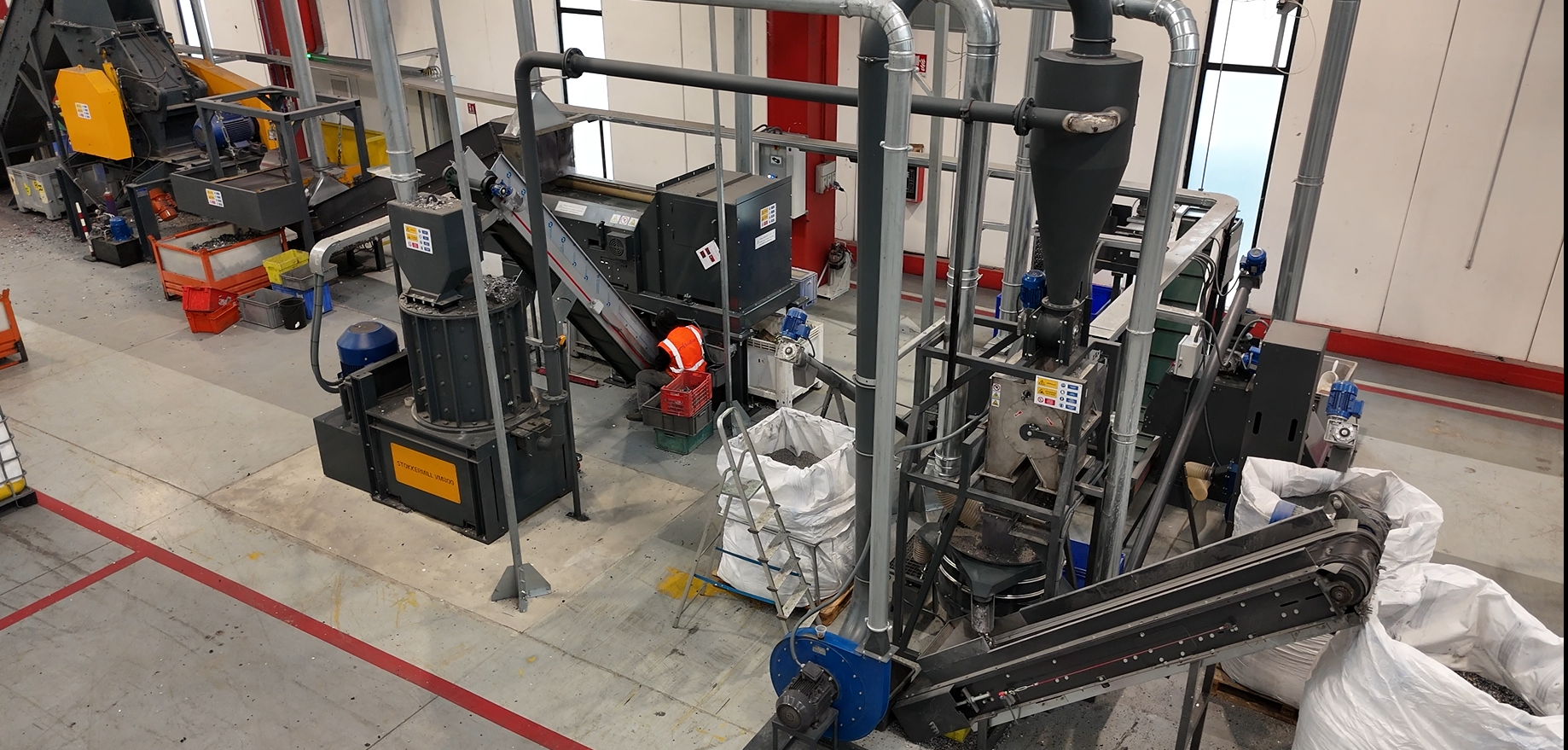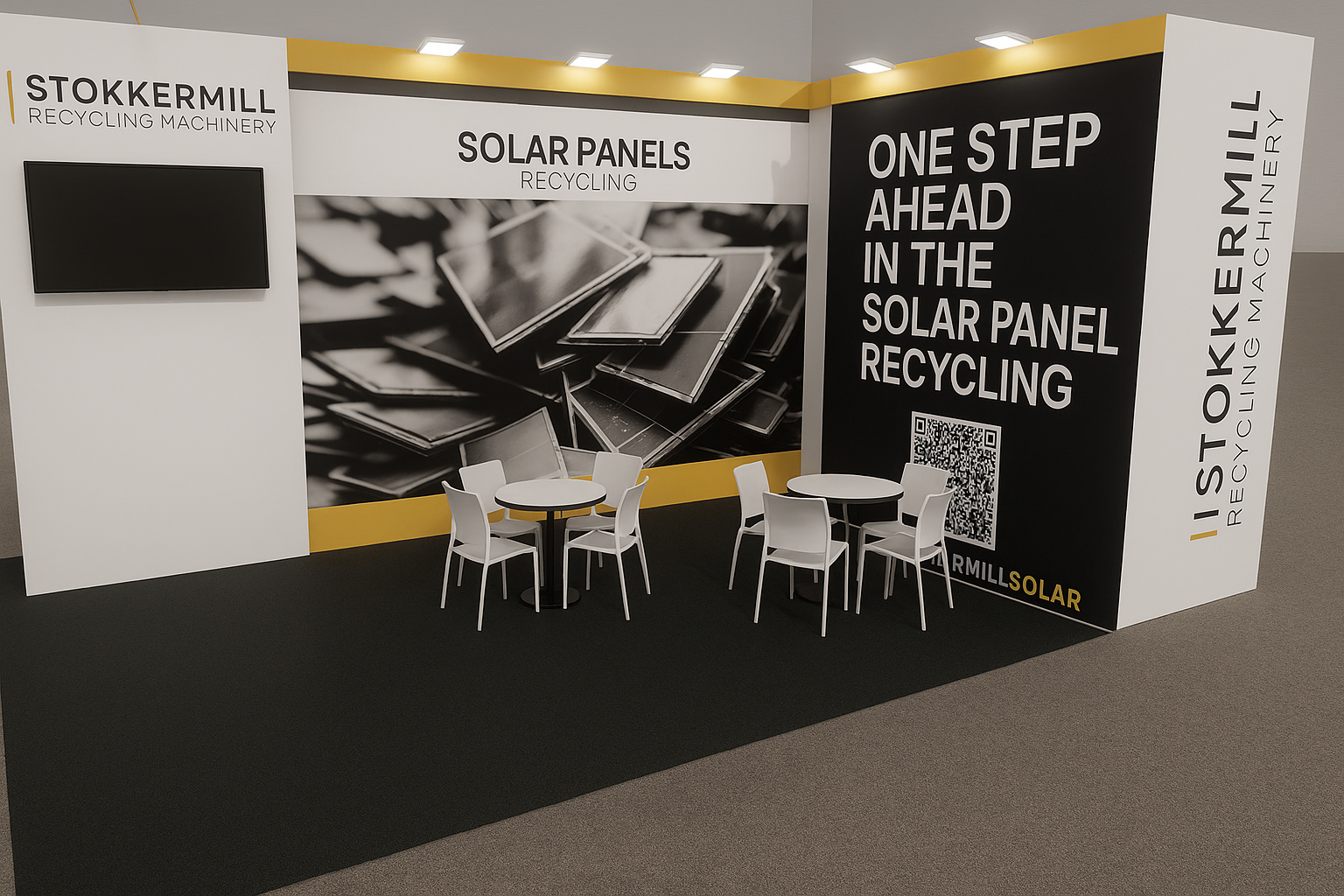We develop the best technologies for recycling materials to find innovative solutions for the energy and ecological transition
STOKKERMILL | SELTEK SRL © 2023 | P. Iva. IT02360630301 | Privacy | Terms
Innovation, flexibility, and scalability: the three pillars of Stokkermill's success Innovation arises when you decide to look at things from a different perspective, without following already established paths. In economics, this attitude is opposed to the concept of “path dependence,” according to which past decisions heavily influence future ones, even when conditions change.
In other words, innovation means breaking the mold, overcoming limitations, and creating efficiency where there was none before. It is precisely this approach that has made Stokkermill Recycling Machinery an international benchmark in the materials recycling sector.
The company's success is based on two key elements: technological innovation and operational flexibility, accompanied by modular scalability that allows customers to grow over time without compromising their initial investment.
.jpeg)
Flexibility is the distinctive feature that allows a recycling plant to adapt to different materials or operations with simple adjustments — often managed automatically by the system itself. In the solar panel recycling sector, Stokkermill is currently the only manufacturer capable of offering plants that can process both photovoltaic panels and WEEE (waste electrical and electronic equipment) with the same efficiency.
This dual functionality represents a strategic advantage for all companies that want to keep more business options open, maximizing the return on investment and paving the way for new opportunities in the electronic recycling market. This flexibility looks beyond immediate needs, anticipating future scenarios in which it will be necessary to recycle not only the solar panel itself, but also the electrical and electronic components that make it up.
Already today, companies using Stokkermill plants for solar panel recycling can easily handle different materials, such as:
• WEEE (electronic waste),
• aluminum profiles and windows,
• other metallic and composite materials.
All this while ensuring maximum return on investment and efficient management of material flows. It is no coincidence that legislators have included photovoltaic panels in the WEEE category, recognizing their hybrid nature between electronics and structural materials. In contrast, many systems on the market today are rigid, complex, and inefficient, with high operating costs and uncompetitive processing times.
Stokkermill, on the other hand, continues to stand out for its dynamic, modular solutions geared towards real productivity.

Scalability is another pillar of the Stokkermill philosophy. Each plant is designed to evolve over time, increasing performance according to customer needs and market changes.
This approach allows us to:
• reduce the initial investment,
• divide the expenditure into progressive phases,
• integrate new technologies and modules into machinery already in operation.
Every Stokkermill innovation stems from this logic: making future solutions compatible with existing ones, ensuring continuity, sustainability, and value over time.

At the next edition of Ecomondo 2025, Stokkermill will present its latest innovations in the field of solar panel, WEEE, and metal recycling. Flexible, scalable systems ready to respond to the challenges of ecological transition and the circular economy.
👉 Come and discover how the flexibility and modularity of Stokkermill systems are redefining standards in the industrial recycling sector